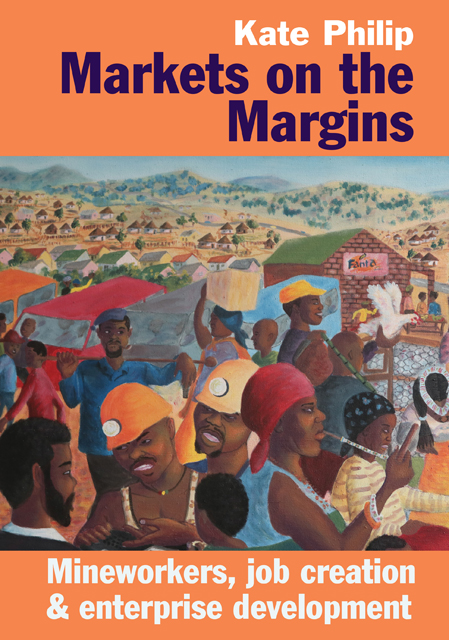Book contents
- Frontmatter
- Contents
- List of Illustrations
- Preface
- Acknowledgements
- Abbreviations
- 1 Introduction: Setting the scene
- 2 The 1987 Mineworkers Strike
- 3 Conflict in the Transkei
- 4 Power Struggles in Lesotho
- 5 Co-ops Capture the Imagination
- 6 The NUM Co-op Programme
- 7 Challenges of Democratic Ownership & Control
- 8 Rethinking Degeneration in Co-op Theory
- 9 The Mineworkers Development Agency’s Development Centre Strategy
- 10 Small Enterprise: In the shadow of the core economy
- 11 A New Enterprise Development Paradigm
- 12 Market Development – or a New ‘Anti-Politics Machine’?
- 13 Breaking into Higher-value Markets in the Craft Sector
- 14 Marula: Product innovation & value chains
- 15 Implications for Enterprise Development Strategy
- 16 If Markets are Social Constructs, how Might we Construct them Differently?
- Select Bibliography
- Index
7 - Challenges of Democratic Ownership & Control
Published online by Cambridge University Press: 20 January 2023
- Frontmatter
- Contents
- List of Illustrations
- Preface
- Acknowledgements
- Abbreviations
- 1 Introduction: Setting the scene
- 2 The 1987 Mineworkers Strike
- 3 Conflict in the Transkei
- 4 Power Struggles in Lesotho
- 5 Co-ops Capture the Imagination
- 6 The NUM Co-op Programme
- 7 Challenges of Democratic Ownership & Control
- 8 Rethinking Degeneration in Co-op Theory
- 9 The Mineworkers Development Agency’s Development Centre Strategy
- 10 Small Enterprise: In the shadow of the core economy
- 11 A New Enterprise Development Paradigm
- 12 Market Development – or a New ‘Anti-Politics Machine’?
- 13 Breaking into Higher-value Markets in the Craft Sector
- 14 Marula: Product innovation & value chains
- 15 Implications for Enterprise Development Strategy
- 16 If Markets are Social Constructs, how Might we Construct them Differently?
- Select Bibliography
- Index
Summary
A big part of the attraction of the co-op model was the co-op principle that the co-op is democratically controlled by its members. The attraction of this notion was heightened by the lack of democracy at a political level in the wider societies in which the NUM co-ops were operating: with the co-ops appearing to prefigure desired political and economic futures.
Operationalising such democratic control was, however, a real challenge. So while the difficulties achieving economic viability discussed in the previous chapter might apply to any start-up enterprise, these problems were compounded by the need to institutionalise democratic processes of decision making. Elements of the contestation around these issues are reflected in an interview with Leribe Co-op Chair Molefi Molefi in 1993. Molefi was asked how he understood the meaning of production democracy:
There are many wrong ideas about this one. If some of the interpretations of democracy in production are going to become the order of the day, then our co-ops are going to fail. If members think that because the co-op belongs to them, each one can do as he likes, then that is not co-operation. You can’t organise production on those lines.
When we come together as a co-op, we are coming together with a clear purpose: to produce as a means to our livelihood. That is our goal; that is why we are there. And we are agreeing to co-operate together in order to reach this goal. The demands of production in a co-op have to be given priority over anything that a person thinks he has the right to do. If there is no production, there is no livelihood and there is no co-op.
A co-op is a business and a business has its own demands. There are tasks that have to be done, or else you are just playing. Let’s say someone is supposed to be mixing cement and he neglects it and says no, I rather think I’ll go to town with some excuse and come back in five hours – that is not cooperative behaviour. It is not democratic behaviour. It is selfish. That person is undermining the whole co-op, because production is disrupted.
When it comes to making decisions about our direction and our production targets and goals, that is when we come together and we take democratic decisions.
- Type
- Chapter
- Information
- Markets on the MarginsMineworkers, Job Creation and Enterprise Development, pp. 69 - 83Publisher: Boydell & BrewerPrint publication year: 2018

